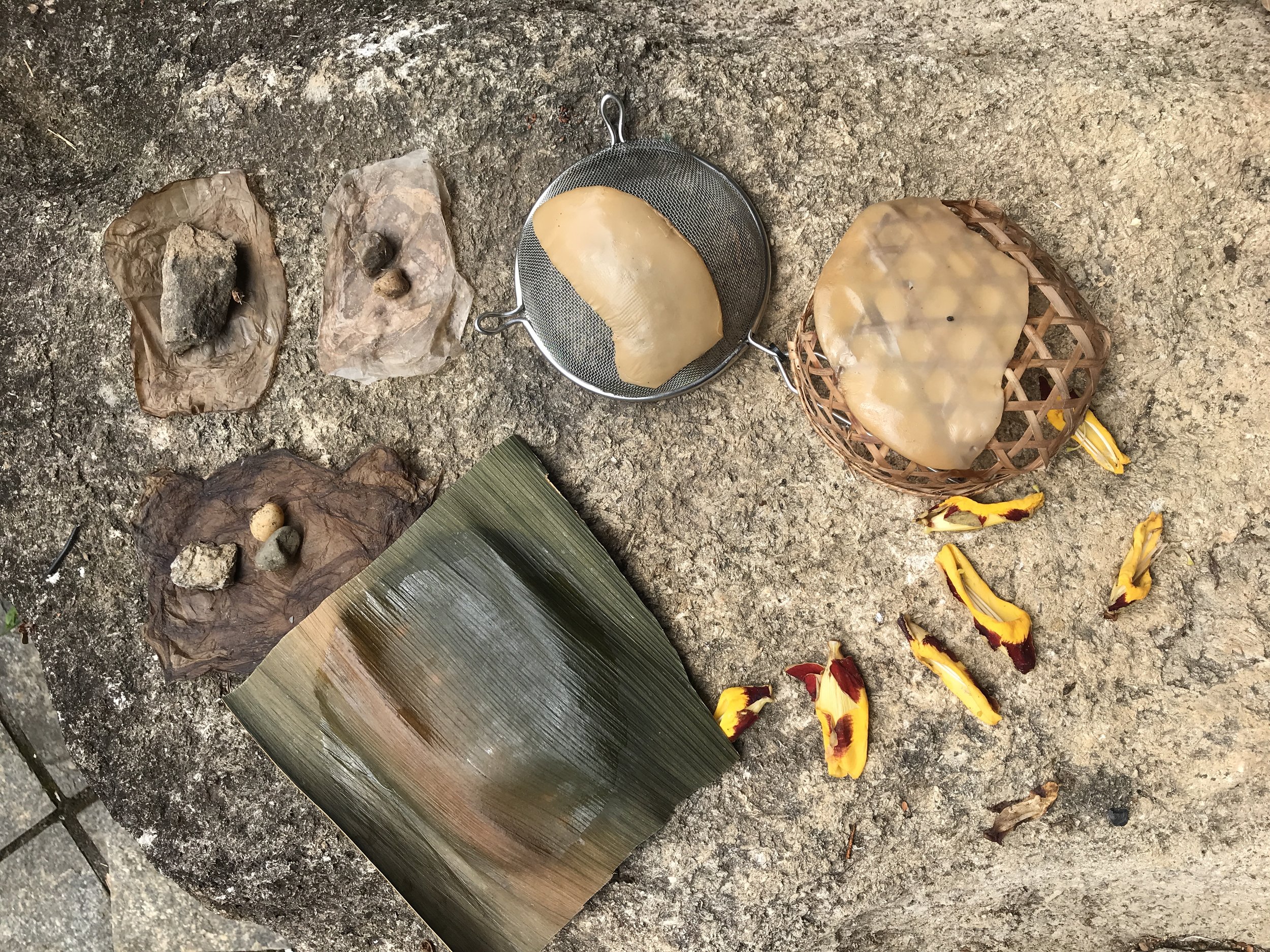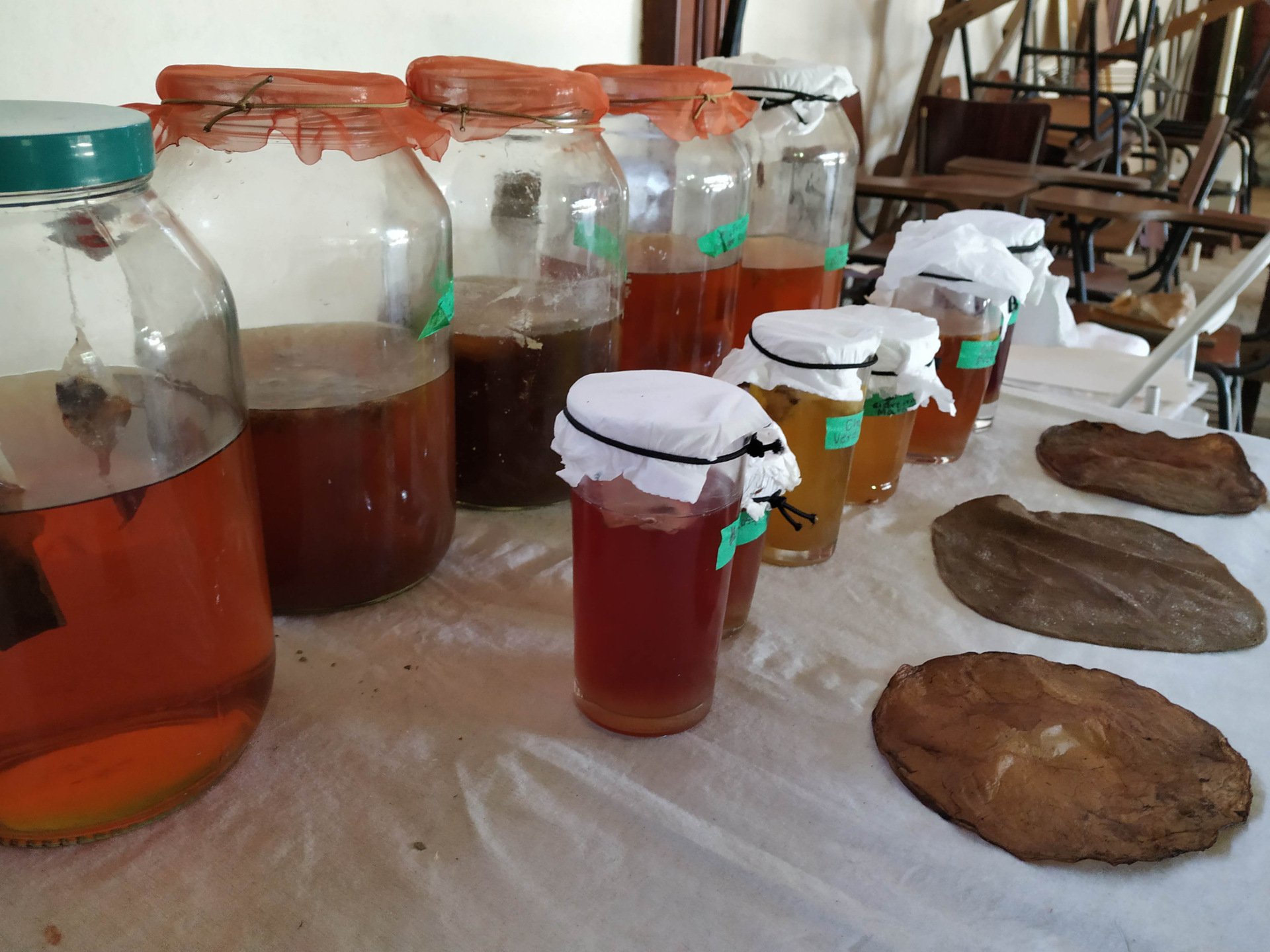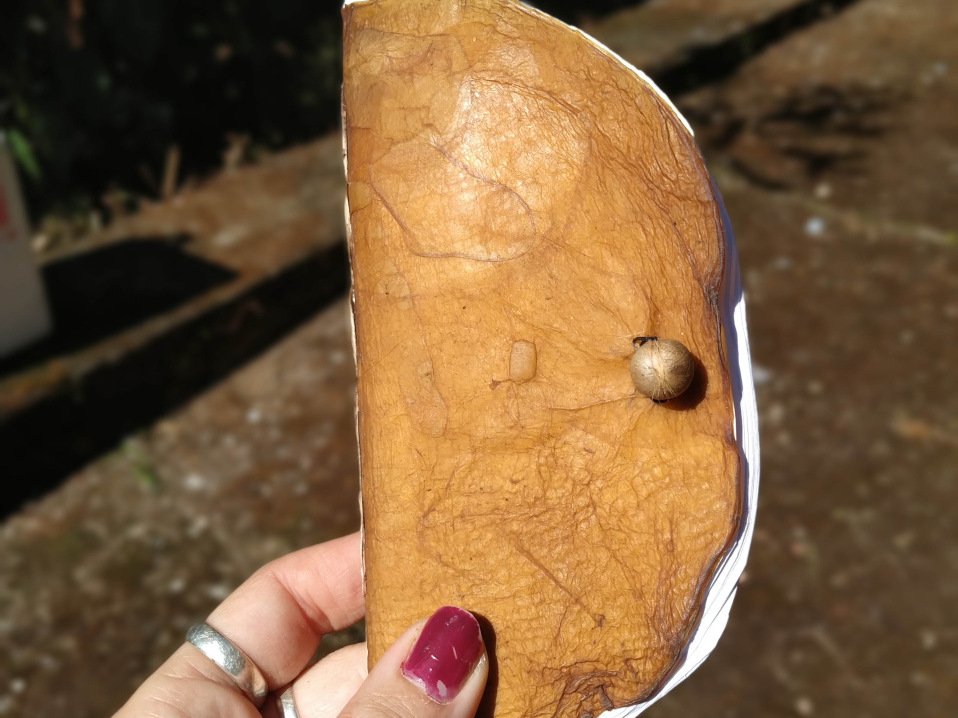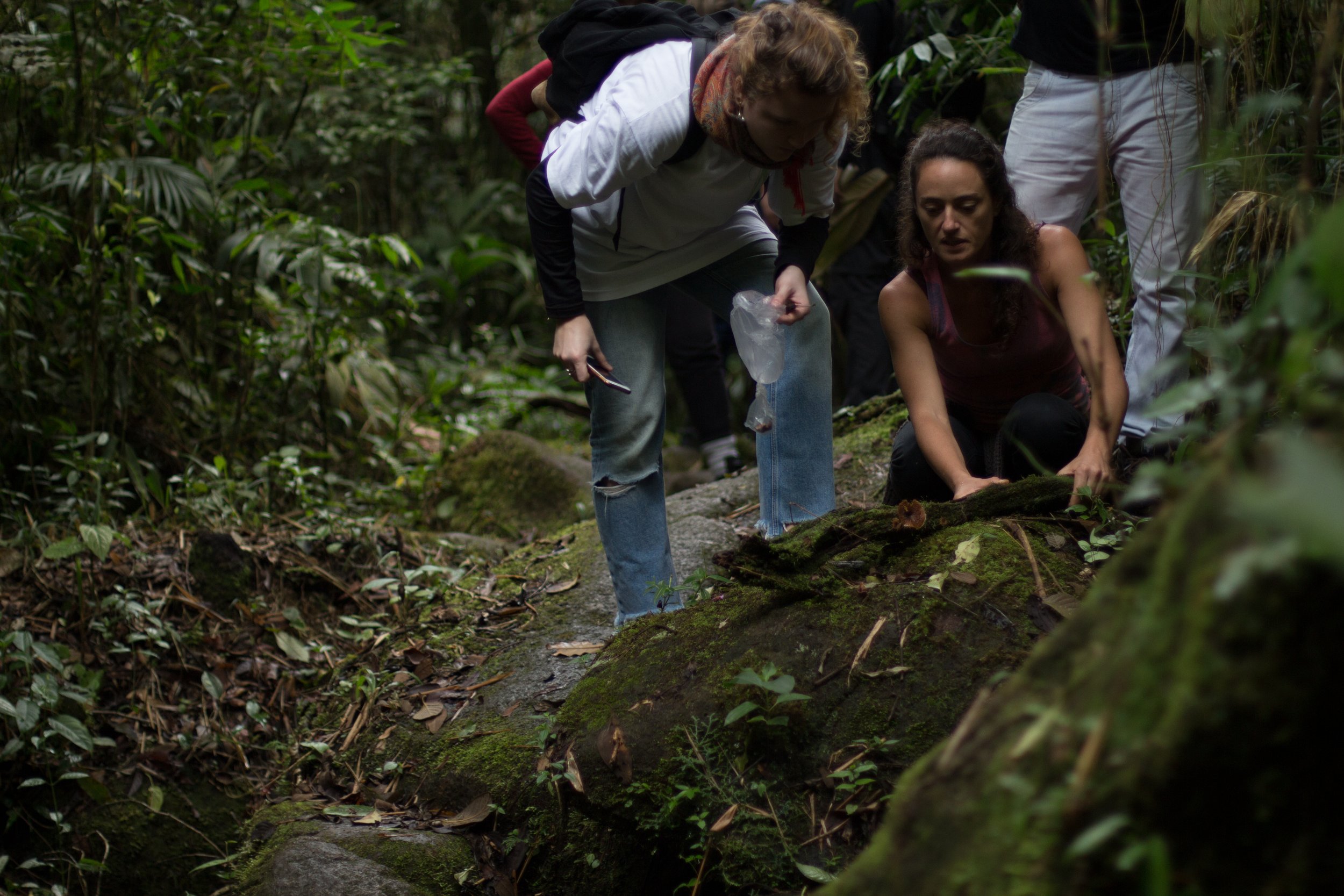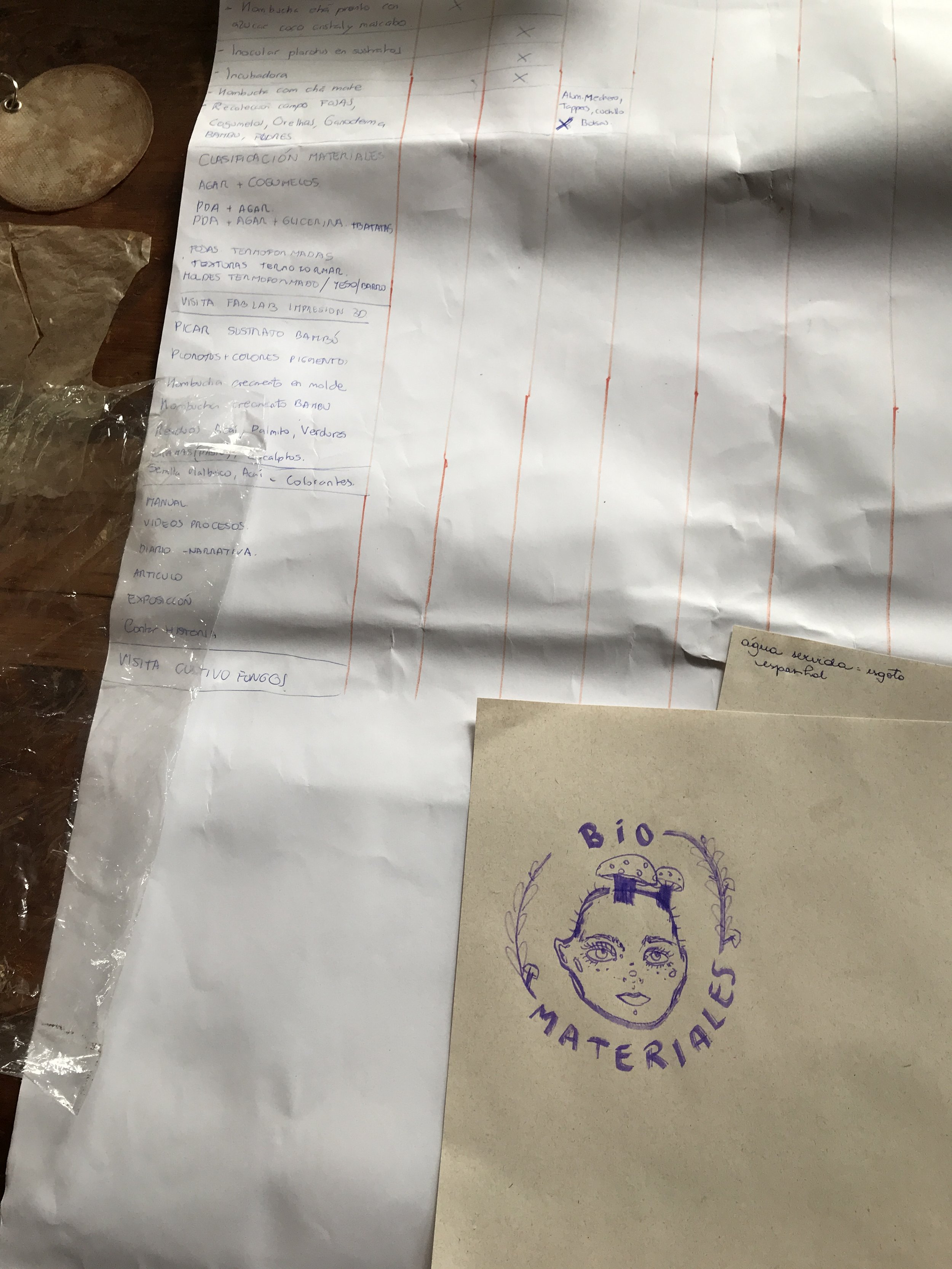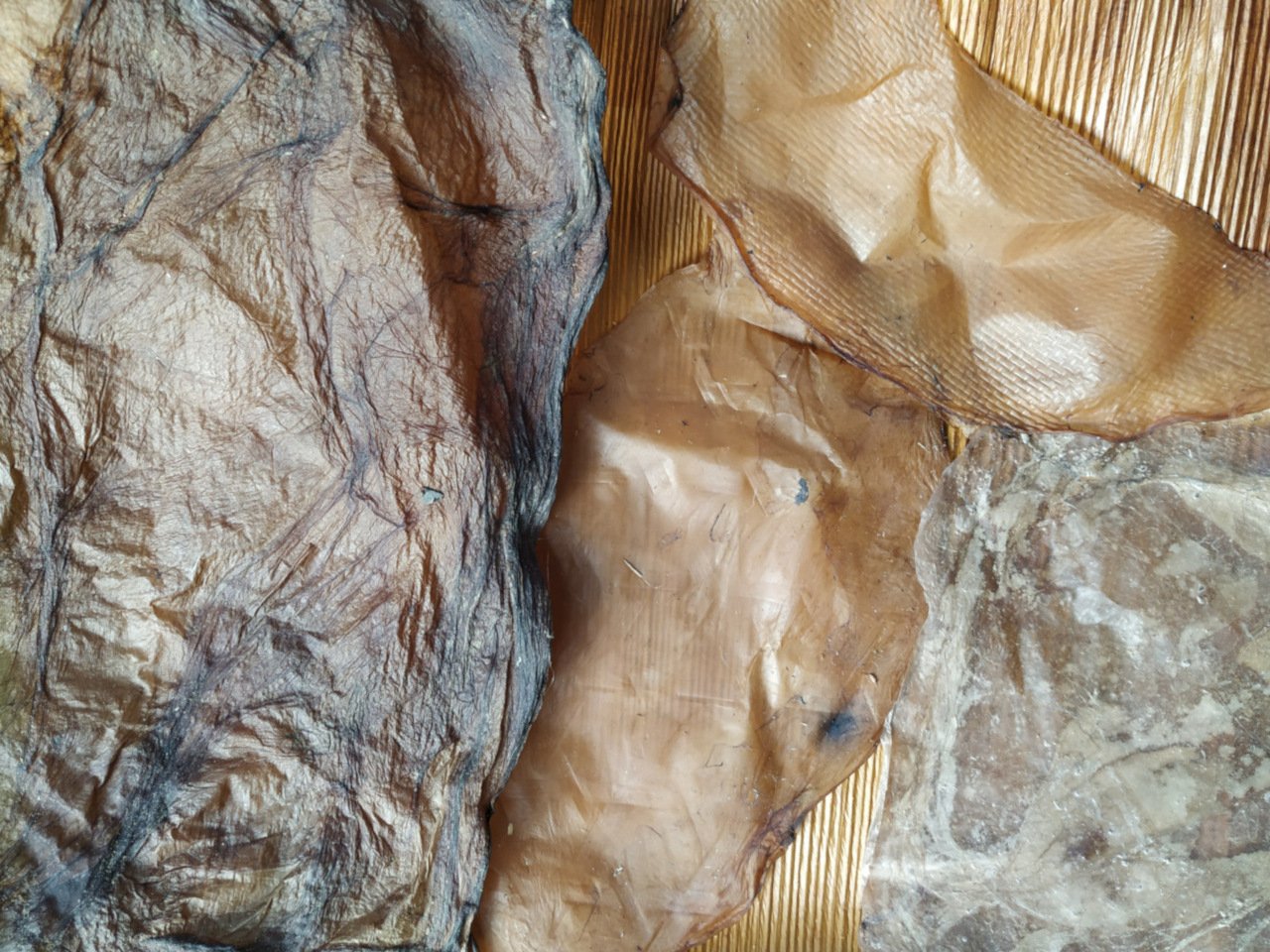
RHIZOME
by Heloísa Oss Boll
Rhizome - rhi.zome (noun) Bothanics: A continuously growing horizontal underground stem which puts out lateral shoots and adventitious roots at intervals. that allows exploring new morphological, sensory and narrative possibilities around biomaterial recipes that use eggshells as the main resource.
"No point of origin or primordial principle commanding all thought; therefore, no significant advance that is not made by bifurcation, unpredictable encounter or re-evaluation of the whole from an unprecedented angle." (Deleuze & Guattari, A Thousand Plateaus)Heloísa Oss Boll
Heloísa is a Biotechnology student at the University of Brasília (UnB), Brazil. She works with Community Engagement at Just One Giant Lab (JOGL), and Synthetic Biology at the SynBio Lab UnB. She is an iGEM Ambassador for Latin America, a member of the Steering Group of Open Science and Accessibility at After iGEM, and a co-founder of SynBio Brasil. During her early experience in the Academic Technology Center (CTA/IF) at UFRGS, Heloísa got introduced to open science and open technology, which has been two of her passions ever since. Curious about life, her interests also include philosophy, architecture, and arts.
heloisa@jogl.io | heloisaboll@yahoo.com.br | @heloisaboll
I participated in a workgroup focused on biomaterials during the Interactivos 2019 Residency at Silo - Art and Rural Latitude, Serrinha do Alambari, Rio de Janeiro, Brazil. We aimed to experiment with digital manufacturing tools to create novel natural materials using organic resources. Furthermore, we also developed natural pigments with regional fruits and plants. For our experimentations, we had at our disposal thermoforming machines, 3D printers, laser cutter machines, as well as sticks, rocks, leaves, and the inspirational sounds of the Mata Atlântica nearby forest, among others. We wanted to generate biodegradable materials and evaluate their application in regenerative products that could not only reduce but also revert environmental impact. We have also explored mycelial and kombucha-made biomaterials and the production of educational zines teaching how to reproduce our experimental protocols. We then delivered them to teachers and young students from regional schools during a fair we promoted, and the digitalized materials are also openly available online. After the Residency, I experimented with mycelium proliferation during the First Open Technologies Latin American Residency, in 2019, which took place at CTA, UFRGS. We tested cloning and growing mycelium derived from mushrooms bought in the supermarket on wood scraps, with low-cost incubators made of boxes and an aquarium heater. I also investigated kombucha leather forms and colors, at my home, using different types of drying methods and natural teas.
